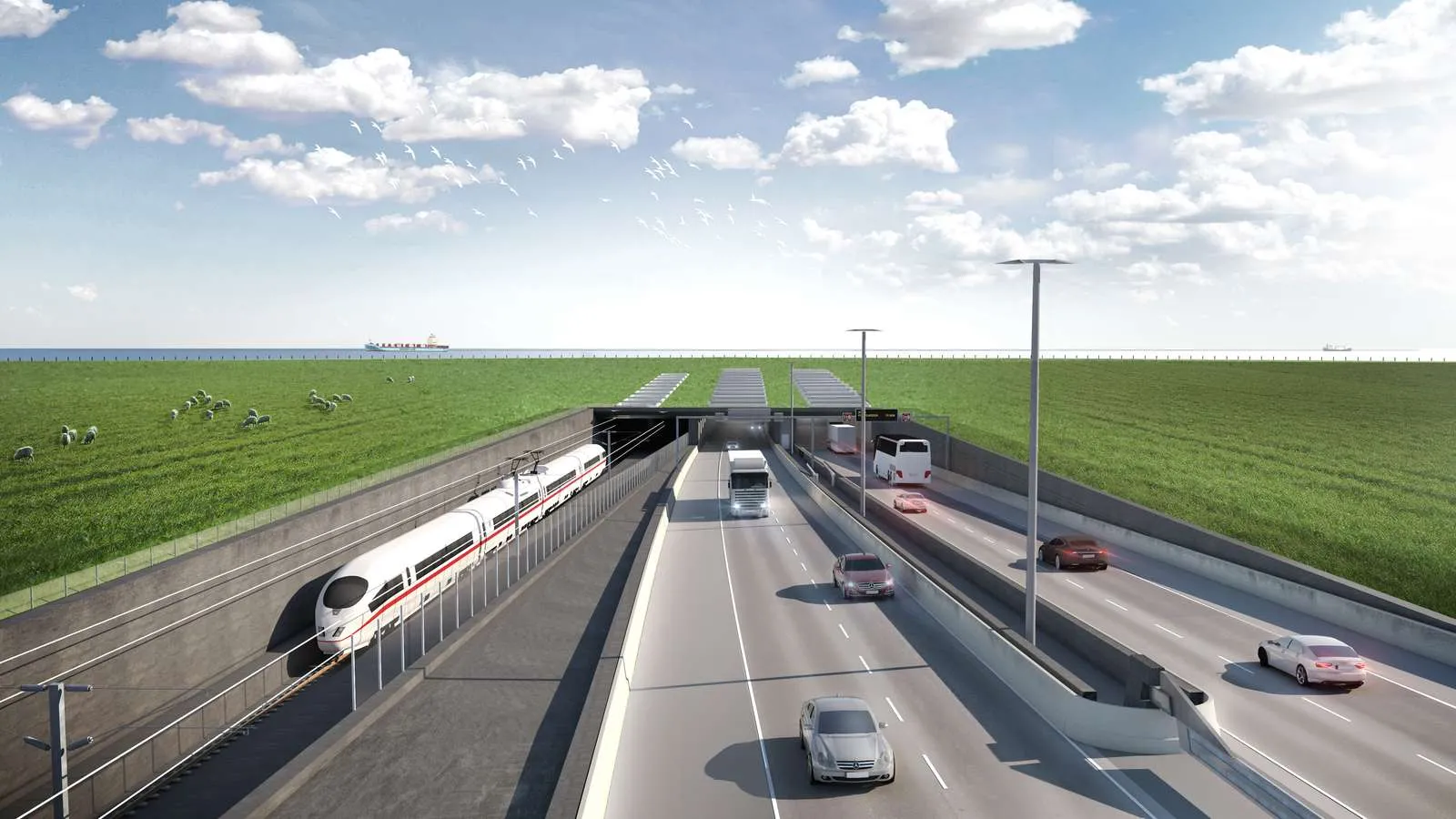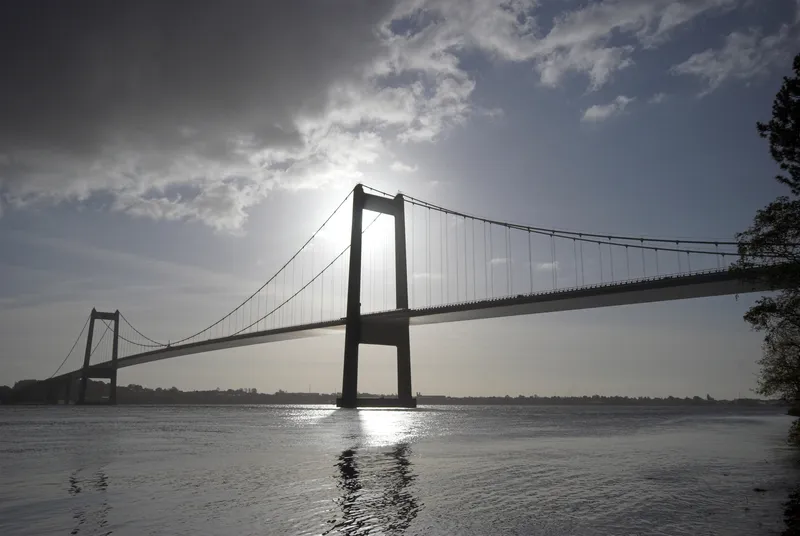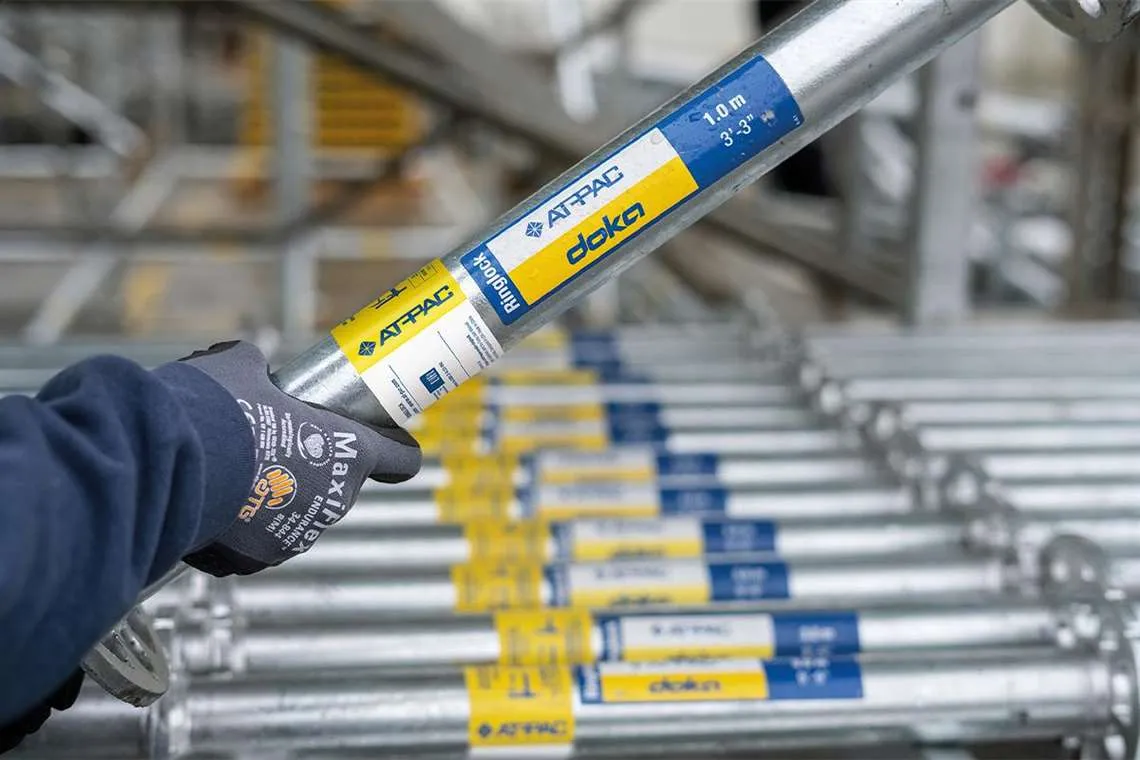
Femern will tender this spring a tunnel track and catenary contract for the 18km immersed road-rail Fehmarnbelt Tunnel being constructed between Denmark and Germany.
The contract is expected to be worth around €200 million. Passage through the tunnel on the fully electrified rail line is expected to last around seven minutes.
Femern is the Danish planning company charged with preparing the Fehmarnbelt Tunnel across the Baltic Sea between the Danish island of Lolland and the German island of Fehmarn. The tunnel will comprise a dual-track railway and a four-lane motorway. Femern ‘s work falls under a treaty between Denmark and Germany which was signed in 2008. The planned tunnel, together with upgrades to the surrounding infrastructure, will reduce travel times between Northern Germany and Scandinavia.
The contract will comprise a 25km two-track railway to run trains at 200kph and a catenary system of which 18km will be in the tunnel itself and 7km outside the tunnel, on the Danish and German sides. The winner of the contract will be announced in the spring of 2025.
Fermen said that when the tunnel with its electrified railway is completed in 2029, it will offer a green “shortcut” for the transport of rail freight and passengers to Europe. The seven-minute ride will avoiding a 160km detour.
In December, Femern awarded a $43.2 million to the Spanish company Elecnor for a so-called “green transformer station” that will supply green power to the Fehmarnbelt tunnel’s installations and the railway line. Femern said at that time of the award that the tunnel’s electric train operations, motorway, ventilation, lighting and other systems will require a constant and reliable power supply. The tunnel will, therefore, have its own transformer station close to the Danish tunnel portal at Rødbyhavn.
The transformer station will be one of the largest facilities of its type in Denmark. It will supply power to the Fehmarnbelt tunnel’s railway and 10 km of railway on the island of Lolland as well as to the tunnel’s technical installations.
The contract sets high energy efficiency requirements and Femern A/S has stipulated that the transformer station should have the capacity to serve the electric means of transport of the future, including charging stations for electric vehicles, explained Jens Ole Kaslund, technical director for Femern.
Preparatory works on the transformer station began earlier in 2022. Elecnor will begin the construction of the transformer station itself in 2023 and will complete is in phases ready for operation in 2028.
Also late last year, Femern awarded a major formwork deal to Doka.









